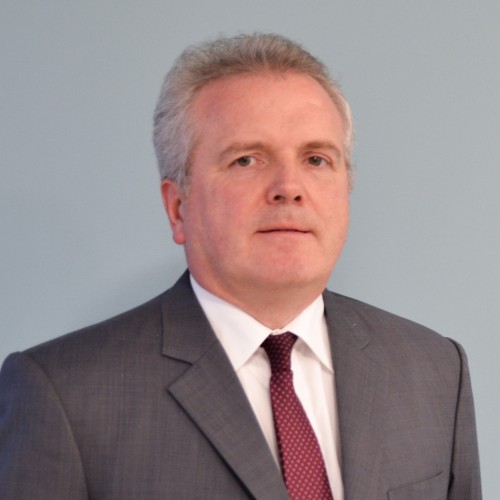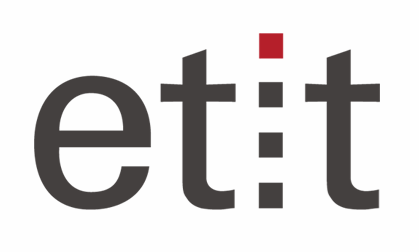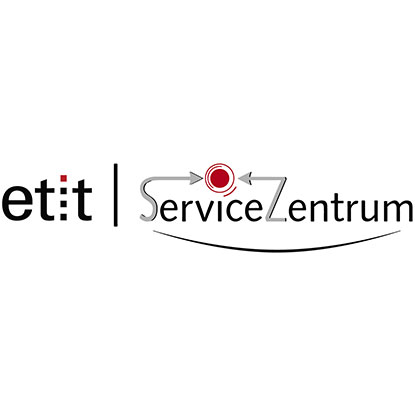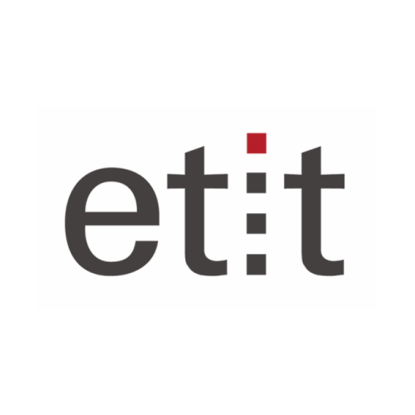More skilled labour for the European microchip industry
EU funds international GreenChips-EDU project
2023/11/10 by TU Graz / mho / IES / sas
TU Darmstadt is involved in the international research project “GreenChips-EDU” together with 14 other universities, companies and research institutions under the leadership of TU Graz. The aim is to train urgently needed specialists for the semiconductor industry. Professor Klaus Hofmann's etit department of Integrated Electronic Systems is largely responsible for designing the learning programmes. The EU is funding the project with 7.15 million euros.

The European Chips Act aims to create the conditions for the development of a European industrial base in the semiconductor sector, attract investment, promote research and innovation and prepare Europe for future chip supply crises. The programme aims to mobilise 43 billion euros in public and private investment (including 3.3 billion euros from the EU budget) to double the EU's global market share in semiconductors from the current 10 percent to at least 20 percent by 2030.
In Germany alone, several billion euros are being invested in the construction of new semiconductor production facilities, including in Magdeburg (Intel) and Dresden (TSMC). A large number of engineers and technicians are needed to operate these new high-tech sites and it is not yet clear where they will come from. There is already a shortage of qualified personnel in the electronics industry, with an estimated shortage of 60,000 to 150,000 workers across Europe.
In order to specifically counteract this shortage of skilled labour, seven European universities have joined forces with eight other partners from industry and research in the GreenChips-EDU project. Together, they want to promote the training of specialists in the field of microelectronics.
TU Darmstadt designs learning programmes
The etit Lab of Integrated Electronic Systems (FG IES) at TU Darmstadt is largely responsible for designing the learning programmes (Bachelor's and Master's programmes, independent modules and MBA). The team led by Professor Klaus Hofmann, Head of FG IES, and Dr Ferdinand Keil addresses the qualification requirements for the green transition in microelectronics for various target groups.
The scientists are designing targeted educational programmes for microelectronics that are geared towards a green and energy transformation (business and technology) as well as a joint digital learning platform. “It is also important to make the degree programmes attractive for the target group and to improve mobility requirements. This also includes a standardised certification and accreditation method between the Unite! partners, i.e. a joint recognition system. The key words here are double degree and unrestricted recognition of academic achievements,” says Dr Keil. TU Darmstadt is receiving 925,000 euros in EU funding for the programme.
GreenChips-EDU is deeply rooted in Unite! The project will develop a variety of live long-learning opportunities to acquire new skills for professional careers in research and industry in the field of green chips and semiconductors.
Tanja Brühl, President of Unite! and the TU Darmstadt
The focus of the degree programmes is on the design and production of sustainable and energy-efficient microchips and the electronic systems based on them, as energy-saving microchips are essential in order to achieve the climate targets in Europe. “For many applications of microelectronic hardware, such as mobile communication, AI, data centres and autonomous driving, the following applies today: companies that develop seriously complex software must increasingly focus on designing their own electronic hardware,” says Professor Klaus Hofmann.
Klaus Hofmann,
Head of the Lab of Integrated Electronic Systems
Many applications can no longer be operated with standard processors in an energy-efficient, high-performance and therefore competitive manner, but require the development of their own microchips. Companies that do not build up their own expertise in this area will lose their competitiveness.

Importance of international university networks
GreenChips-EDU also demonstrates the importance of international university networks for the success of large collaborative projects. TU Darmstadt, like TU Graz and the four other university partners, is part of the European University Alliance Unite!
“GreenChips-EDU is deeply rooted in Unite! The project will develop a variety of lifelong learning programmes to acquire new skills for professional careers in research and industry in the field of green chips and semiconductors. The trustful cooperation of all partners in the project consortium will create an impressive knowledge triangle of excellent research, future-oriented education and innovative companies in green microelectronics,” says Professor Tanja Brühl, President of Unite! and TU Darmstadt.
The aim is for 600 students to complete a Bachelor's or Master's programme over the four-year project period. The Master's programmes are also to be maintained after the end of the project period. In addition to the degree programmes, GreenChips-EDU is developing further education courses for the further and higher qualification of specialists from industry – ranging from short workshops and microcredentials to MBA programmes.
In addition to the universities, an association and a research institute, six companies are also involved in GreenChips-EDU, including Infineon Technologies Austria and Končar from Croatia. The industrial partners are involved through teaching assignments and cooperation on final theses, among other things.
About the European University Initiative
The European Universities Initiative was launched in 2019 to drive forward the creation of a European Education Area by 2025. The European Universities are transnational alliances of higher education institutions from the EU that pursue a long-term strategy and convey European values and identity. The initiative aims to significantly increase student and staff mobility and promote the quality, inclusiveness and competitiveness of European higher education.
In response to an initial call for proposals for the Erasmus+ programme in 2019, the first 17 alliances were selected for a three-year pilot phase to lay the foundations for future European universities. Unite! was among these first 17, with a further 24 alliances following in the second call for proposals in 2020.
The new funding for Unite!, which will start at the end of 2022, falls under the calls for further implementation of the European Universities Initiative. By mid-2024, the number of European universities is to be increased to 60, bringing together more than 500 universities and supported by Erasmus+ with an expected budget of 1.1 billion euros for the period 2021-2027.
The aim is to develop and share joint and long-term structural, sustainable and systemic co-operation in education, research and innovation to create European inter-university campuses where students, staff and researchers from all parts of Europe can enjoy seamless mobility and co-create new knowledge across countries and disciplines.
Always up-to-date with exciting news from the etit campus: Follow us on Instagram!
Recommended external content
We have selected external content from Instagram for you and would like to show it to you right here. To do this, you must reveal it with one click. You can hide the external content at any time with another click.
I agree to external content from X being shown to me. This may result in personal data being transmitted to third-party platforms. You can find more information in our Privacy Policy.



